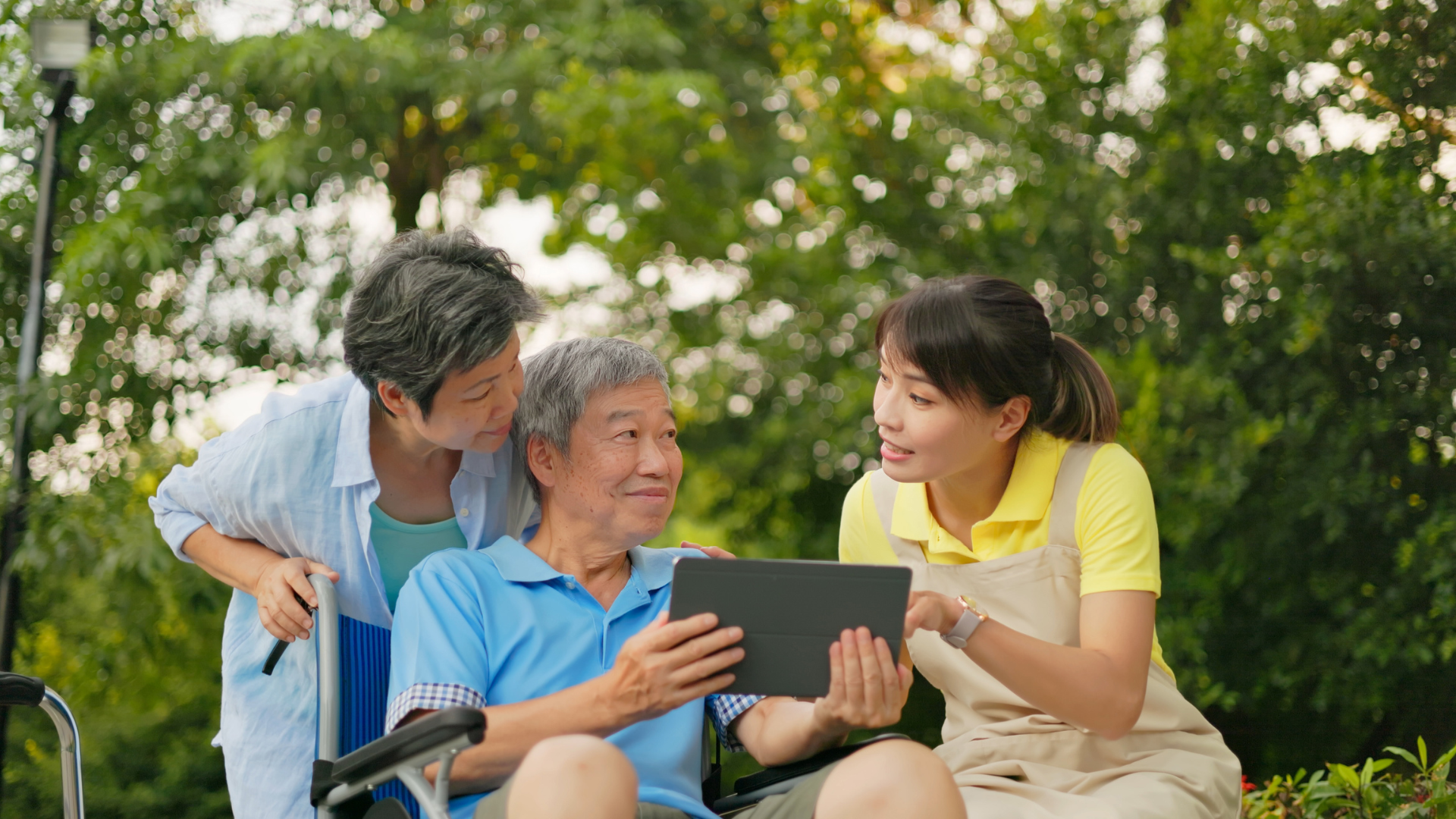What Support Systems Exist for Alzheimer's Caregivers?
If you are a caregiver for someone living with Alzheimer’s, you are aware of the challenges that come with this role. You may feel alone and overwhelmed with the vast responsibility that comes with helping a loved one cope with a disease that has no known cure. It can be difficult to find resources that provide physical, mental, and emotional support to help you manage the responsibilities of caregiving. Fortunately, there are a variety of support systems available that can help you manage the stress and fatigue associated with caregiving for someone with
Alzheimer’s. In this blog post, we will explore some of the support systems available to Alzheimer's caregivers.
Emotional Support Systems
Support groups:
- In-person support groups: These groups provide a safe space for caregivers to connect, share experiences, and receive emotional support from others who understand their challenges.
- Online support groups: Online platforms and forums offer a convenient way for caregivers to connect with others, share advice, and find solace in a virtual community.
Counseling and therapy:
- Individual therapy: Caregivers can benefit from individual therapy sessions to address their emotional well-being, cope with stress, and develop effective caregiving strategies.
- Family therapy: Family therapy sessions can help improve communication, enhance understanding, and strengthen relationships among family members involved in caregiving.
Respite care:
- Temporary relief for caregivers: Respite care services offer caregivers a break from their caregiving responsibilities, allowing them to rest, recharge, and attend to their own needs.
- Professional respite care services: Trained professionals can provide temporary care for individuals with Alzheimer's, ensuring their safety and well-being while allowing caregivers to take time off.
Practical Support Systems
Caregiver education and training:
- Workshops and seminars: Caregiver-focused workshops and seminars provide valuable information, practical tips, and resources to enhance caregiving skills and knowledge.
- Online resources and courses: Online platforms offer a wide range of educational materials, courses, and webinars that caregivers can access at their convenience.
Caregiver support organizations:
- Non-profit organizations dedicated to supporting caregivers: These organizations offer a range of services, including support helplines, educational resources, and caregiver support programs tailored to the specific needs of Alzheimer's caregivers.
- Helplines and hotlines for immediate assistance: Hotlines provide caregivers with immediate access to trained professionals who can offer guidance, support, and answers to their questions.
Financial assistance and resources:
- Government programs and benefits: Caregivers may be eligible for financial assistance, such as caregiver allowances, tax credits, and insurance coverage, through government programs designed to support individuals caring for loved ones with Alzheimer's.
- Grants and financial aid for caregivers: Various organizations and foundations offer grants and financial aid to help caregivers with the costs associated with caregiving, including respite care, medical expenses, and home modifications.
Healthcare Support Systems
Medical professionals:
Primary care physicians: Primary care doctors can provide guidance, monitor the health of individuals with Alzheimer's, and coordinate care with other specialists.
Geriatric specialists: Geriatric specialists have expertise in managing the unique needs of older adults, including those with Alzheimer's, and can provide specialized care and support.
Home healthcare services:
Skilled nursing care: Skilled nurses can provide medical care, administer medication, and monitor the health of individuals with Alzheimer's in the comfort of their own homes.
Home health aides: Home health aides assist with activities of daily living, such as bathing, grooming, and meal preparation, allowing individuals with Alzheimer's to remain in a familiar environment.
Alzheimer's care facilities:
- Assisted living facilities: Assisted living facilities offer a supportive and secure environment for individuals with Alzheimer's, assisting with daily activities, medication management, and social engagement.
- Memory care units: Memory care units within assisted living facilities or nursing homes specialize in providing comprehensive care for individuals with Alzheimer's, including specialized activities, therapies, and a secure environment.

Technology-Based Support Systems
Mobile applications
- Caregiver support apps: Mobile apps provide caregivers with tools for managing medications, tracking symptoms, accessing resources, and connecting with support networks.
- Medication management apps: These apps help caregivers organize medication schedules, set reminders, and receive alerts to ensure the proper administration of medications.
Remote monitoring systems
- Sensor-based monitoring systems: These systems use sensors to monitor the safety and well-being of individuals with Alzheimer's, alerting caregivers to potential risks or emergencies.
- Video surveillance systems: Video surveillance can provide caregivers with peace of mind by allowing them to remotely monitor their loved ones and ensure their safety.
Online resources and communities
- Websites and forums for information and support: Online platforms offer a wealth of information, resources, and forums where caregivers can find guidance, share experiences, and connect with others facing similar challenges.
- Virtual support networks: Virtual support networks provide a supportive community of caregivers who can offer advice, empathy, and encouragement through online platforms and social media groups.

Self-care and Personal Support Systems
- Importance of self-care for caregivers: Caregivers must prioritize their well-being by engaging in activities they enjoy, seeking respite, and practicing self-care to prevent burnout and maintain their own physical and mental health.
- Personal support networks: Caregivers can lean on family, friends, and supportive community members who can provide emotional support, lend a helping hand, or offer a listening ear.
Conclusion
Alzheimer's caregiving can be a challenging and demanding role, but caregivers are not alone. Various support systems exist to provide emotional, practical, healthcare, and technological assistance to help caregivers navigate the complexities of caring for someone with Alzheimer's. It is essential for caregivers to seek and utilize these support systems, prioritize self-care, and build personal support networks to ensure their own well-being while providing the best possible care for their loved ones.
If you are an Alzheimer's caregiver, remember that you are not alone. Reach out to support organizations, healthcare professionals, and online communities for guidance and assistance. Take care of yourself and know that your dedication and love make a significant difference in the lives of those you care for.
Caregiver Services
Home Care Services
Home Matters Caregiving
Mon - Fri • 9am - 7pm CST
Greater Cleveland Region
Greater Philadelphia Region
Greater Pittsburgh Region
Personal & Companion Care
Specialized Care
Additional Services
Home Matters Caregiving
Mon - Fri • 9am - 7pm EST
Greater Cleveland Region
Greater Philadelphia Region
Greater Pittsburgh Region
Personal & Companion Care
Specialized Care
Home Matters. All Rights Reserved.

